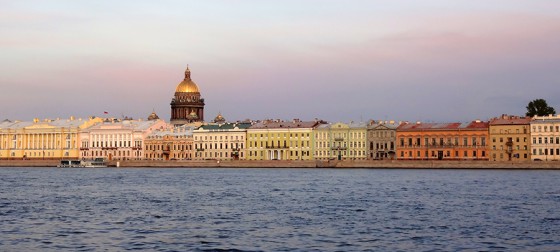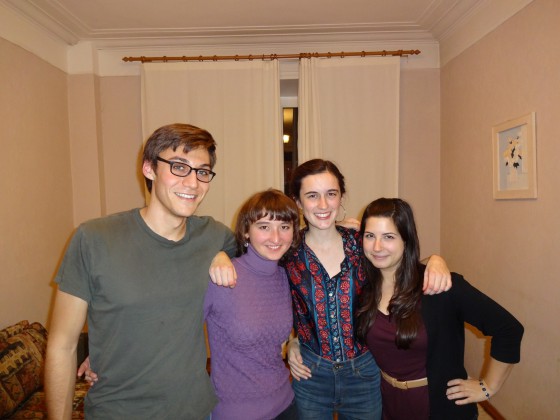
I am studying abroad in St. Petersburg, Russia, the Venice of the North, Russia’s imperial capital, Peter the Great’s window to Europe. It is a magnificent city, but an otherworldly one. From the embankment behind the grand Hermitage or the buttresses of the Peter and Paul Fortress the city looks like a mirage- little more than the mighty Neva river and the vast northern sky, with a narrow strip of crumbling, pastel buildings in between. Although by Russian standards Petersburg is relatively new, it is nevertheless of staggering historical and literary importance. Here is the theater where Anna Karenina scandalized polite society, there is the square where the workers first gathered on Bloody Sunday, in all these beautiful mansions people were starving during the blockade. But I cannot claim any preexisting fascination with the country’s politics, history, or literature as the main reason I am here. Rather, it is the Russian language itself. I am often asked to justify my decision to study Russian, and while I wish I could say I want to be an ambassador, that is simply not the case. As a friend and I admitted to each other, hesitantly, as if we were sharing a shameful secret, we just think it’s, well, cool. I love the imposing, impenetrable look of the printed alphabet, and the way in which the spoken language manages to sound simultaneously melodic and threatening. For the first month or so of my time here, I felt like my Russian was getting worse, because every day I was becoming aware of more and more things that I didn’t know. The language is astonishingly rich. There are verbs meaning to cry until you get what you want, to cry until you have no tears left, to cry until you feel better, to squander your talent through excessive drinking, to at first think someone looks strange, but then to have him walk past you so many times that you get used to him and stop thinking he looks strange. There is a noun meaning a totally irrational belief that, despite all indications to the contrary, everything will somehow turn out all right, and at least three different words for “friend,” each connoting a slightly different level of intimacy. The process of language-acquisition is a deeply humbling one. Many days hold nothing but frustration as I struggle to express the ideas and desires that are clamoring inside my head. But there are moments of the most sublime reward, such as a recent dinner conversation I had with my host father. As I ate my borshch and plov, we discussed everything from his youthful experimentation with marijuana in the army (he didn’t understand what all the fuss was about) to Nicola Tesla (if only the Gilded Age industrialists hadn’t suppressed his findings, we’d get all our energy from the air and travel in private spaceships) to Yuri Luzhkov, the corrupt former mayor of Moscow (or is that a redundancy?). While it’s true that I did far more listening than talking, my ability to participate must be proof of some level of proficiency, right? I’m already scheming up ways to come back here after graduation. Until I can hold forth in Russian on topics as diverse as drugs and robber barons, I’ll have unfinished business in this country.
